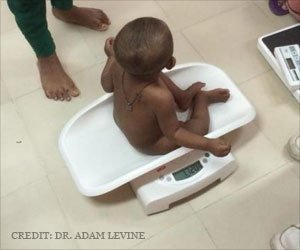Preventing Malnutrition and Stunting in Children With Vaccines

Researchers at Washington University School of Medicine in St. Louis have determined, in studies of human cells as well as mice, how some types of diarrhea-causing Escherichia coli (E. coli) bacteria damage the intestines to cause malnutrition and stunting. And they’ve shown that vaccinating against a toxin produced by E. coli protects infant mice from intestinal damage.
The findings suggest that a vaccine against this kind of E. coli could boost global efforts to ensure that all children not only make it to age 5 but thrive. The study is published in Nature Communications.
Vaccine Against Suffering Malnourishment Epidemic in Children
When kids become malnourished, their risk of dying from any cause goes up. The World Health Organization is in the process of deciding how to prioritize vaccines for kids in low- and middle-income countries, and so these data suggest that vaccinating kids against E. coli diarrhea could be hugely beneficial in places that struggle with this.
Advertisement
Researchers have studied a kind of E. coli known as enterotoxigenic E. coli or ETEC so named for the two toxins it produces and its effects on children who live where the bacteria run rampant.
E. coli is a common cause of diarrhea worldwide, but the strains found in the U.S. and other high-income countries typically don’t carry the same toxins as those in low- and middle-income countries. And that may make all the difference.
Studying infant mice, the researchers found that a single infection with toxin-producing E. coli was sufficient to damage the brush border, while repeated infections led to extensive intestinal damage and growth lag. Pups infected with a strain of E. coli that lacks the toxin showed no such intestinal damage or stunting.
If the toxin is the problem, an immune response neutralizing the toxin may prevent the long-term effects. To find out, they vaccinated nursing mouse mothers with the toxin. Suckling mice are too young to be immunized themselves, but their vaccinated mothers produce antibodies that pass to the pups through breast milk.
The researchers found that the intestines of infant mice from vaccinated mothers appeared healthy, suggesting that vaccination can protect against intestinal damage leading to malnutrition.
Vaccination, combined with efforts to improve sanitation and access to clean water, could protect children from the long-term effects and give them a better shot at long and healthy lives.
Source: Eurekalert
Source link
#Preventing #Malnutrition #Stunting #Children #Vaccines



